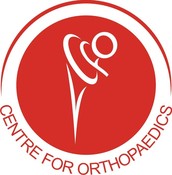|
|

|
« Back
Joint Replacements Trigger Some, But Not All, Airport Security Systems
|
Posted on: 11/30/1999
|
Increased airport security has consequences for patients with metal implants. Anyone with a pacemaker is not required to go through a metal detector screening. A pat-down screening will be needed.
Joint replacements may or may not set off the metal detector. In this article, Dr. Ostrum, Chief of the Orthopaedic Trauma Unit at Cooper University Hospital in New Jersey looks at this problem.
One person with a joint replacement may trigger an alarm at one airport that doesn't get triggered at another. The factors that affect metal detection may include:
Type and amount (mass) of metal used in the implant
Sensitivity of the instrument used to detect metal
Location of the implant (how close is it to the wand or walk-through archway)
Speed of the person walking through the detector or speed of the wand moved over the implant
Today's modern metals are difficult to magnetize and are poor conductors so are difficult to detect. Older implants with higher amounts of iron or other magnetic material are more likely to set off the alarm. Metal plates with more than four screws used to hold the implant in place are more likely to activate the archway.
Anyone with more than one implant is likely to trigger the alarm just based on the amount (mass) present. Implants made of titanium, cobalt, or chrome alloys are also less likely to be detected.
With today's increased airport security, patients can expect to set off security alarms and need to have a pat-down exam. Carrying a card or certificate stating that there is an orthopedic implant does not exempt anyone. Notifying the security staff in advance is not required but is recommended.
|
References:
Robert F. Ostrum, MD. Airport Detection of Implanted Orthopedic Devices. In The American Journal of Orthopedics. October 2006. Vol. 35. No. 10. Pp. 465-468.
|
|
|
« Back
|
|
|
|
*Disclaimer:*The information contained herein is compiled from a variety of sources. It may not be complete or timely. It does not cover all diseases, physical conditions, ailments or treatments. The information should NOT be used in place of visit with your healthcare provider, nor should you disregard the advice of your health care provider because of any information you read in this topic. |
 | All content provided by eORTHOPOD® is a registered trademark of Mosaic Medical Group, L.L.C.. Content is the sole property of Mosaic Medical Group, LLC and used herein by permission. |
|
